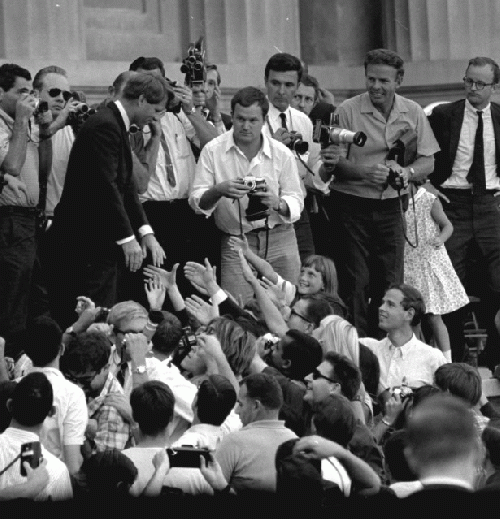At the outset I would like to distinguish between hope as a realistic expectation for improvements in one’s worldly existence versus hope for a better life to follow. This latter form of hope, or faith, is outside the realm of politics and should play no role in it, though this rule is obviously often violated.
Barrack Obama has spent a good deal of time in his campaign speeches and in debates talking about hope. He has been trying to inspire hope in an electorate that has become turned off from politics, an electorate that has become cynical after seven years of an administration where hope was given only to those in the upper income ranks, an electorate that has seen the catastrophe of September 11, 2001 transformed from a national tragedy into a bludgeon to force the nation into a pointless war with tragic loss of U.S. soldiers, Iraqi civilians, and the waste of over two trillion dollars.
Senator Clinton as well as John McCain has tried to use Senator Obama’s efforts to inspire hope in the American people as evidence that he is an unrealistic dreamer, all words but no action, even hinting that he is some sort of impostor or charlatan.
However, Senator Obama has argued that if the American people do not have hope, if they do not feel that their federal government is at least as concerned for the common man as it is for the rich and powerful, then they will continue to be disinterested in the political process, will continue to vote in low numbers, and will therefore not provide the grassroots muscle needed to overcome the grip of the special interests upon the national discourse and the decision making process.
In their debate in Cleveland on February 26, 2008 Senator Obama responded to a video clip showing Senator Clinton making fun of his rhetoric of hope. Obama:
“I am absolutely clear that hope is not enough. It is not going to be easy to pass health care. If it [were] it would already have gotten done. It’s not going to be easy to have a sensible energy policy in this country. Exxon-Mobil made $11 billion last quarter. They are not going to give up those profits easily.”
“But what I also believe is that the only way we are going to actually get this stuff done is, number one, we’re going to have to mobilize and inspire the American people so that they’re paying attention to what their government is doing. And that’s what I have been doing in this campaign and that’s what I will do as President.”
“And there’s nothing romantic or silly about that. If the American people are activated, that’s how change is going to happen.”
“The second thing we are going to have to do is we’re actually going to have to go after the special interests…[Senator Clinton said] you can’t just wave a magic wand and expect special interests to go away. That is absolutely true. But it doesn’t help if you’re taking millions of dollars in contributions from those special interests-- they are [then] less likely to go away. So it is important for us to crack down on how those special interests are able to influence Congress. And yes it is important for us to inspire and mobilize and motivate the American people to get involved and pay attention.”
In short, Senator Obama does realize that the mere generation of hope for the future is not sufficient to bring about the changes needed to overcome the power of vested interests. But, he argues that a hopeful attitude by a majority of the American people is an absolute prerequisite for positive change to occur. Hope is necessary, but not sufficient.
Senator Obama’s campaign style and his message have been compared to those of Robert F. Kennedy when he made his fateful run for the Presidency 40 years ago. Senator Kennedy, too, argued that hope is a prerequisite for change. In a speech given at the University of California at Berkeley on October 22, 1966 Senator Kennedy said the following:
.
.
(Note: You can view every article as one long page if you sign up as an Advocate Member, or higher).





